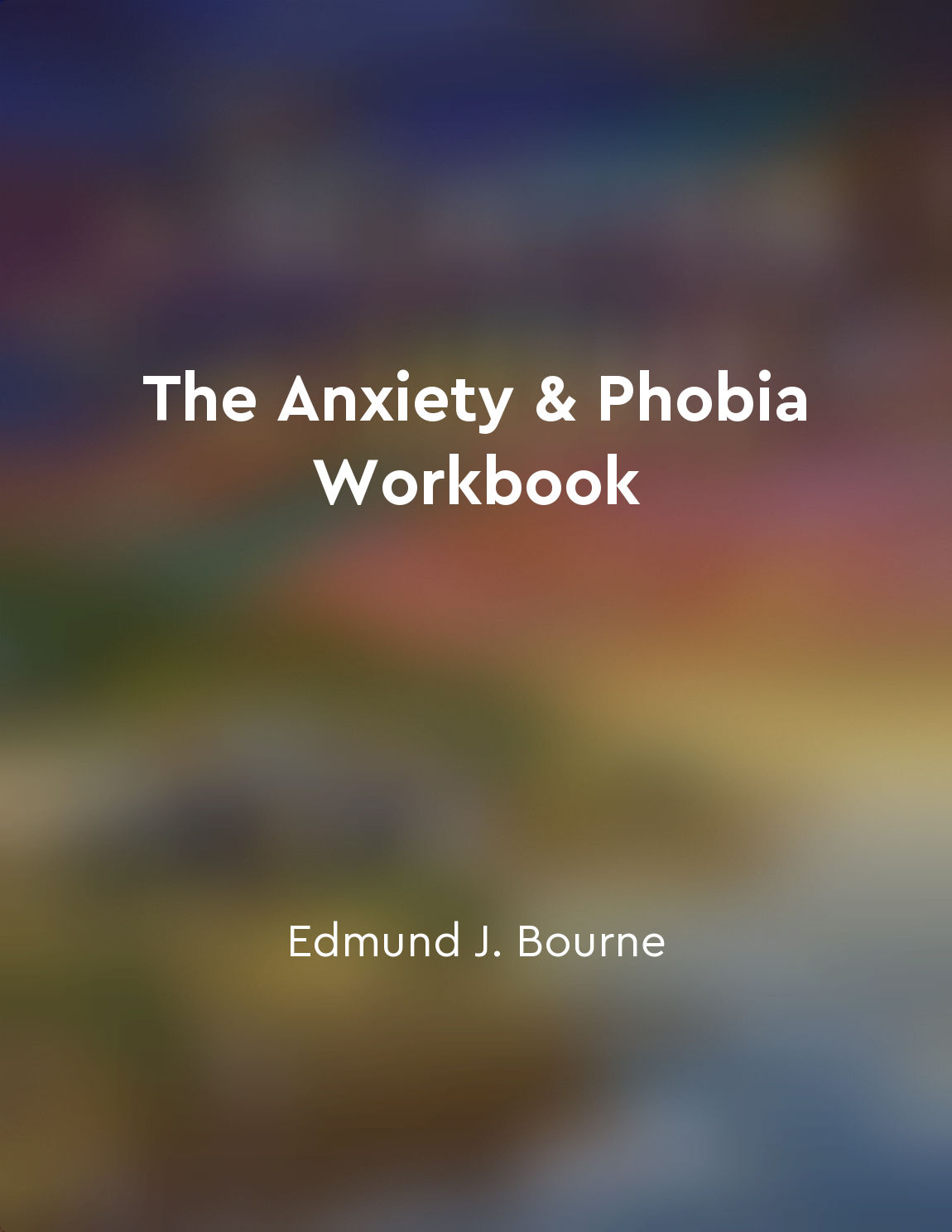Audio available in app
An individual's thoughts and beliefs contribute to anxiety symptoms from "summary" of Cognitive Therapy of Anxiety Disorders by David A. Clark,Aaron T. Beck
In the realm of anxiety disorders, it is crucial to recognize the significant role that an individual's thoughts and beliefs play in the manifestation of anxiety symptoms. These cognitive processes are not merely passive reactions to external stressors, but rather active contributors to the experience of anxiety. By examining the content and structure of these thoughts and beliefs, clinicians can gain valuable insights into the underlying mechanisms driving anxiety symptoms. Individuals with anxiety disorders often exhibit patterns of thinking that are characterized by cognitive distortions, such as catastrophizing, overgeneralization, and selective attention to perceived threats. These distorted thought patterns can fuel feelings of fear and uncertainty, leading to a heightened state of anxiety. For example, a person with social anxiety may catastroph...Similar Posts

Shift your perspective on mistakes
When it comes to mistakes, we often view them as something negative, something to be avoided at all costs. But what if we were ...
Developing a support network can provide encouragement and guidance in managing anxiety
When facing anxiety, it is essential to have a support network in place. This network can consist of friends, family members, t...
Anxiety disorders are common mental health conditions
Anxiety disorders are prevalent mental health conditions that affect a significant portion of the population. These disorders c...
Seek professional help if anxiety becomes overwhelming
When anxiety starts to feel like it's taking over, it can be challenging to manage on your own. It's crucial to recognize when ...
Cognitive therapy offers hope for individuals struggling with anxiety disorders
Individuals struggling with anxiety disorders often feel overwhelmed and hopeless, as if their condition is insurmountable. The...
Homework assignments help reinforce therapeutic techniques
Homework assignments play a crucial role in reinforcing the therapeutic techniques taught during sessions. These assignments pr...
Lifestyle changes such as reducing caffeine intake can improve anxiety symptoms
One important lifestyle change that can have a significant impact on anxiety symptoms is reducing caffeine intake. Caffeine is ...
Anxiety is a catalyst for personal transformation
Anxiety, rather than being a hindrance or a mere negative emotion, can actually serve as a powerful catalyst for personal trans...

Recognizing triggers can help manage anxiety and phobias
Understanding the triggers that set off anxiety and phobias is essential in learning how to manage and eventually overcome thes...
